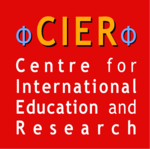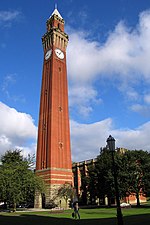The Queen's Foundation
Anglican buildings and structures in the United KingdomAnglican seminaries and theological collegesBible colleges, seminaries and theological colleges in EnglandBuildings and structures in Birmingham, West MidlandsChristianity in Birmingham, West Midlands ... and 5 more
EdgbastonEducation in Birmingham, West MidlandsEducational institutions established in 1828Methodist seminaries and theological collegesThe Queen's Foundation

The Queen's Foundation for Ecumenical Theological Education (also called the Queen's Foundation, Birmingham and formerly the Queen's College, Birmingham) is an ecumenical theological college which, with the West Midlands Ministerial Training Course, forms the Centre for Ministerial Formation of the Queen's Foundation for Ecumenical Theological Education. It serves the Church of England and the Methodist Church, and its courses thus have a strong ecumenical emphasis.
Excerpt from the Wikipedia article The Queen's Foundation (License: CC BY-SA 3.0, Authors, Images).The Queen's Foundation
Somerset Road, Birmingham Bournbrook
Geographical coordinates (GPS) Address External links Nearby Places Show on map
Geographical coordinates (GPS)
| Latitude | Longitude |
|---|---|
| N 52.4573 ° | E -1.9314 ° |
Address
The Queen's College
Somerset Road
B15 2QH Birmingham, Bournbrook
England, United Kingdom
Open on Google Maps








